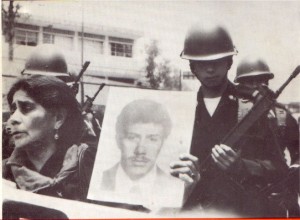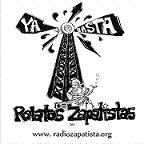

Literatura marginal en São Paulo, Brasil
Reportaje sobre el movimiento de literatura marginal en las favelas y periferias de la ciudad de São Paulo, Brasil.(Descarga aquí)
Desde hace varios años, la periferia de São Paulo es sede de una revolución por demás festiva y poderosa guiada por el arte, la cultura y la literatura. En ella, el coraje y la alegría de la periferia paulista transforman con firmeza -con chidez y firmeza, si me permiten la expresión- la vida cotidiana. Va aquí una muestra sonora de ello:
Paz a quem merece. Ferréz, escritor e impulsor del proyecto 1daSul y de la literatura marginal brasileña, reflexiona sobre su narrativa y comparte fragmentos de ella. Sao Paulo, 25 de Enero de 2012. Música: “Conflitos”, Dexter; “Bem-vindos”, Ferréz. Duración: 2:20 min: (Descarga aquí)
Lutar por felicidade. Sérgio Vaz, poeta y uno de los fundadores del proyecto cultural Cooperifa en la zona sur de São Paulo, reflexiona sobre la lucha por la felicidad en la periferia y comparte su poema “Os miseráveis”. Música: “What’s go in on”, Marvin Gay. Duración: 1:55 min. Sao Paulo, 25 de Enero de 2012: (Descarga aquí)
Fazer café. Samara de Oliveira, organizadora del Sarau “O que dizem os umbigos” del Itaim Paulista, en la zona este de São Paulo, comparte su poema “Árvore”. Sao Paulo, Brasil, 21 de Enero de 2012. Duración: 1:14 min: (Descarga aquí)
(A) Massa. Emerson Alcalde, actor, dramaturgo y educador de Cangaíba, en la zona este de São Paulo, comparte su poema “(A) Massa”. Música: “Gentileza”, Marisa Monte. Duración: 2:05 min. São Paulo, 21 de Enero de 2012: (Descarga aquí)
O desafio da minha passagem. Tubarao, artista del litoral paulista, habla sobre su poesía y comparte fragmentos de los textos “Tiempos modernos” y “Lavagem”. Música: “Quanto vale a liberdade”, Cólera. Duración: 2:30 min. Sao Paulo, Brasil, 17 de Enero de 2012: (Descarga aquí)
Quem eu sou. Escritor, cineasta y recopilador de literatura marginal, Alessandro Buzo, el “Suburbano Convicto” de São Paulo, Brasil, habla sobre quién es él. Música: “Faculdade de 1,000 grau”, Tribunal Mc’s. São Paulo, 17 de Enero de 2012: (Descarga aquí)
Edición y recopilación: Alij Anaya (yahoraescuandoes.wordpress; flavors.me/yahoraescuandoes)








